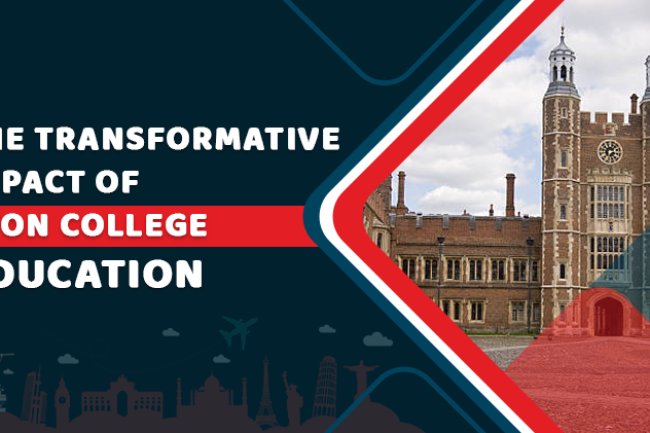Why Study One Year Master Program in UK
Studying a one-year master's program in the UK can be a great opportunity to further your education and gain valuable international experience. Here are some steps you can take to make it happen. Here are some steps you can follow to pursue a one-year master's program in the UK:

A one-year Master's program in the UK is an intensive graduate-level program that typically lasts for 12 months and is designed to provide students with advanced knowledge and skills in a specific academic discipline. These programs are highly focused, and often require students to undertake independent research, complete coursework, and participate in seminars or lectures.
In the UK, Master's programs are typically divided into two categories: taught programs and research programs. Taught programs are similar to undergraduate courses, with a structured curriculum and a focus on classroom learning, while research programs require students to conduct independent research under the supervision of a faculty member.
Completing a one-year Master's program in the UK can provide graduates with advanced knowledge and skills that can enhance their career prospects or prepare them for further academic study. The UK is home to many highly-ranked universities, which offer a wide range of Master's programs across various disciplines. These programs are designed to meet the needs of students with diverse academic backgrounds and career goals, and can provide an excellent education in a relatively short amount of time.
Why Study One Year Master Program in UK
- There are several reasons why studying a one-year Master's program in the UK can be a great option for students.
- Time and Cost Efficiency: A one-year Master's program in the UK allows students to complete their degree quickly and efficiently, which can save them time and money compared to longer programs. This can be particularly appealing for students who are interested in pursuing advanced studies but have limited resources.
- Access to World-Class Universities: The UK is home to some of the world's top-ranked universities, which offer a wide range of Master's programs across different disciplines. Studying in the UK can provide students with access to world-class academic resources, faculty, and research opportunities.
- High-Quality Education: The UK has a long history of providing high-quality education, and its universities are well-regarded globally. The country has a rigorous academic system that ensures students receive a comprehensive and well-rounded education.
- Global Career Opportunities: Earning a Master's degree in the UK can open up new career opportunities and enhance employability. UK universities have strong industry connections, and many offer career development support and networking opportunities for their students.
- Cultural and Social Experience: Studying in the UK provides students with the opportunity to experience a new culture, meet people from different backgrounds, and explore new places. The country is known for its vibrant cities, diverse communities, and rich history and culture.
Want To Study Abroad?
If you are interested in studying abroad, there are several steps you can take to start the process:
- Research your options: Begin by researching countries, universities, and programs that interest you. Consider factors such as cost, location, language requirements, academic reputation, and program offerings.
- Choose a program and institution: Once you have narrowed down your options, choose a program and institution that aligns with your academic and career goals.
Meet admission requirements: Make sure you meet the admission requirements for your chosen program, which may include academic qualifications, language proficiency tests, and other criteria. - Apply for admission: Apply for admission to your chosen program or institution, following their application process and deadlines.
Secure funding: Look into scholarships, grants, and other funding options that may be available to help cover the cost of your studies abroad. - Prepare for travel: Once you have been accepted into your program, begin preparing for travel. This may include obtaining a student visa, arranging for housing, and making travel arrangements.
Studying abroad can be an exciting and rewarding experience, but it requires careful planning and preparation. By following these steps, you can take the first steps towards achieving your goals of studying abroad.
Reasons to choose one-year master’s program in the UK
There are several reasons why you may want to consider a one-year Master's program in the UK:
- High-Quality Education: UK universities are known for their high academic standards and world-class teaching. By studying in the UK, you will have access to a top-quality education that can help you develop advanced knowledge and skills in your chosen field.
- Shorter Duration: One-year Master's programs in the UK are designed to be intensive and focused, allowing you to complete your degree in a shorter amount of time. This means you can earn your Master's degree and return to the workforce or pursue further academic study more quickly than you would with a two-year program.
- Cost-Effective: One-year Master's programs in the UK are often more cost-effective than longer programs, as they require less time and tuition fees. Additionally, many UK universities offer scholarships, grants, and other financial aid options to help offset the cost of tuition.
- Career Advancement: A one-year Master's program in the UK can provide you with advanced skills and knowledge in your chosen field, which can enhance your career prospects and help you stand out in a competitive job market.
- Cultural Immersion: Studying in the UK can be an opportunity to immerse yourself in British culture and gain a unique perspective on the world. You will have the chance to meet people from different backgrounds and make lifelong connections while experiencing life in a new country.
Eligibility criteria for one-year master’s degree in the UK
The eligibility criteria for a one-year Master's degree program in the UK may vary depending on the university and program you choose. However, some general requirements that you may need to meet include:
- Bachelor's degree: You will typically need to have a Bachelor's degree from a recognized university or institution. Some universities may also require a minimum GPA or class of degree.
- English language proficiency: If English is not your first language, you will usually need to provide evidence of your English language proficiency by taking an approved language test such as IELTS, TOEFL, or Cambridge English.
- Relevant academic background: Some Master's programs may require you to have a relevant academic background or work experience in a related field. For example, if you are applying for a Master's degree in Computer Science, you may need to have a background in Computer Science or a related field.
- Academic references: You will typically need to provide two or three academic references from professors or instructors who can vouch for your academic abilities and potential.
- Personal statement: You may be required to submit a personal statement outlining your academic background, career goals, and why you are interested in the specific Master's program you are applying for.
- Additional requirements: Some Master's programs may have additional requirements, such as writing samples, portfolios, or interviews.
Read Also: Study In UK
Details of the application process
The application process for a one-year Master's degree program in the UK may vary depending on the university and program you choose. However, here are some general steps that you may need to follow:
- Choose your program and university: Research and select the Master's program and university that best suits your academic and career goals.
- Check the admission requirements: Check the admission requirements and make sure you meet the eligibility criteria for the program.
- Prepare your application materials: Gather all the necessary documents, such as your academic transcripts, English language proficiency test results, CV, personal statement, and academic references.
- Submit your application online: Most universities have an online application system where you can create an account and submit your application materials. Make sure you follow the instructions carefully and complete all sections of the application.
- Pay the application fee: Some universities may require you to pay an application fee. Make sure you check the fee and payment method with the university.
- Wait for a decision: Once you have submitted your application, you will need to wait for a decision from the university. This process can take several weeks or months, so it is important to apply well in advance of the program start date.
- Accept your offer: If you are accepted into the program, you will receive an offer letter from the university. You will usually need to accept the offer and pay a deposit to secure your place in the program.
Cost of Masters in the UK
The cost of a Master's degree in the UK can vary depending on several factors, such as the university, program, duration of the course, and location of the university. Generally, the tuition fees for one-year Master's programs in the UK range from £10,000 to £30,000 or more.
Apart from tuition fees, you may also need to consider other costs such as accommodation, transportation, textbooks, and living expenses. The cost of living in the UK can vary depending on the location, but you can expect to spend around £800-£1,200 per month on living expenses, including accommodation, food, transport, and leisure activities.
International students may also need to pay for healthcare, visa fees, and other administrative fees. It is important to check the specific costs for the Master's program and university you are interested in before applying.
List of popular universities in the UK
Here is a list of some popular universities in the UK:
- University of Oxford
- University of Cambridge
- Imperial College London
- University College London (UCL)
- University of Edinburgh
- University of Manchester
- University of Bristol
- University of Warwick
- University of Glasgow
- King's College London
- London School of Economics and Political Science (LSE)
- University of Leeds
- University of Sheffield
- University of Southampton
- University of Nottingham
- University of St Andrews
- University of York
- University of Sussex
- University of Birmingham
- University of Aberdeen
Job opportunities after a one-year Master's program in the UK
Completing a one-year Master's program in the UK can open up a range of job opportunities for graduates. Here are some potential career paths:
- Academia and research: Graduates can pursue a career in academia, either by continuing their studies with a PhD or by teaching and conducting research at a university or research institution.
- Business and management: Graduates can apply their knowledge and skills to various roles in business and management, including marketing, finance, human resources, and consulting.
- Healthcare: Graduates can pursue careers in healthcare, such as nursing, physiotherapy, occupational therapy, or counseling.
- Engineering and technology: Graduates can work in a range of industries, such as aerospace, automotive, energy, and electronics.
- Media and communications: Graduates can work in media and communications, including journalism, public relations, advertising, and digital media.
- Law and public service: Graduates can pursue careers in law, government, and public service, including policy-making, diplomacy, and international relations.
- Overall, a one-year Master's program in the UK can provide graduates with the skills and knowledge necessary to succeed in a wide range of careers. Graduates can also benefit from the strong reputation and global connections of UK universities, which can enhance their job prospects both in the UK and abroad.
Conclusion
A one-year Master's program in the UK can provide an excellent opportunity for students to gain advanced knowledge and skills in their field of study, while also experiencing the culture and academic traditions of the UK. The UK has a long history of academic excellence and is home to many world-renowned universities offering a wide range of Master's programs across various disciplines.
The eligibility criteria and application process for one-year Master's programs may vary depending on the university and program of study. However, most universities require applicants to have a Bachelor's degree or equivalent, and to meet the minimum English language requirements.
The cost of a one-year Master's program in the UK may also vary depending on the university and program, but international students should be prepared to pay higher tuition fees than UK students. However, there are many scholarships and funding options available to help support international students.
Completing a one-year Master's program in the UK can provide graduates with a range of career opportunities in various industries and sectors, both in the UK and abroad. It can also offer a valuable cultural experience and help develop personal and professional skills.
FAQs
1. How long is a one-year Master's program in the UK?
A one-year Master's program in the UK typically lasts for 12 months, starting in September or October and finishing in August or September of the following year.
2. What are the advantages of studying a one-year Master's program in the UK?
The advantages of studying a one-year Master's program in the UK include gaining advanced knowledge and skills in a specific field, experiencing the culture and academic traditions of the UK, and enhancing career opportunities in a global market.
3. What are the eligibility requirements for a one-year Master's program in the UK?
The eligibility requirements for a one-year Master's program in the UK typically include having a Bachelor's degree or equivalent, meeting the minimum English language requirements, and sometimes having relevant work experience.
4. What is the cost of a one-year Master's program in the UK?
The cost of a one-year Master's program in the UK varies depending on the university and program of study. However, international students should expect to pay higher tuition fees than UK students.
5. What are the job opportunities after completing a one-year Master's program in the UK?
Graduates of a one-year Master's program in the UK can pursue careers in various industries and sectors, both in the UK and abroad, including academia and research, business and management, healthcare, engineering and technology, media and communications, and law and public service.
6. What are the scholarship and funding options available for international students?
There are various scholarship and funding options available for international students, including scholarships offered by the universities, government-funded scholarships, and external funding sources.
What's Your Reaction?





















